Suffering from frequent urination and blood in the urine, the male patient went to the doctor and was diagnosed with early stage prostate cancer, requiring surgery to completely eradicate the tumor.
Unlike the anxiety when he received the results of prostate cancer, Mr. Dang Chi Hieu (56 years old, Dong Nai) is now happy, his health has recovered well, the wound is soft, the fluid is dry, he can eat, walk, and no longer urinates blood.
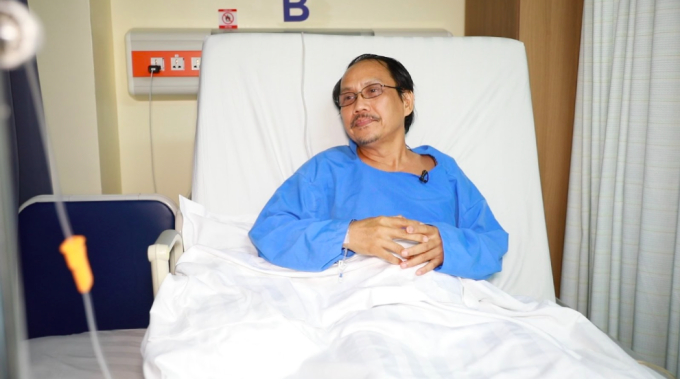
After surgery, Mr. Hieu's health is stable, he eats, drinks and sleeps well. Photo: Tam Anh General Hospital
Mr. Hieu said that two years ago, during a general health check-up at his office, the doctor said that his prostate was slightly enlarged, with a high PSA index (a protein produced by cancerous and healthy tissue in the prostate), and that he needed to have regular health checks and monitoring. However, due to the Covid-19 pandemic, he did not have regular health check-ups.
Recently, Mr. Hieu had some unusual symptoms when urinating such as a feeling of frequent urination and blood in the urine, so he went to Tam Anh General Hospital in Ho Chi Minh City for examination.
After examination and diagnostic tests, the results showed that Mr. Hieu had stage 2 prostate cancer. The doctor ordered surgery to completely eradicate the cancer.
The 4-hour surgery went smoothly, and the patient responded well. The patient had his entire prostate removed, along with all the seminal vesicles, and all lymph nodes and tissue surrounding the prostate removed. After surgery, Mr. Hieu's health was stable, and after 7 days, his stitches were removed and he was discharged. The patient was scheduled to have his catheter removed after 14 days. Regular monitoring and health check-ups are maintained every 3 months.
Associate Professor, Dr. Vu Le Chuyen, Director of the Center for Urology - Nephrology, Tam Anh General Hospital, Ho Chi Minh City, said that prostate cancer has 3 treatment methods. Depending on the stage of the disease, as well as the health status of the patient, the doctor will advise the appropriate treatment method. If the tumor is in the early stage (stage I-II), the optimal treatment method is surgery, removing the entire prostate tumor along with the seminal vesicles. This case has a very good prognosis. Surgery can be performed by endoscopy or open surgery depending on the patient's condition.
If in a later stage (stage III-IV), the tumor has metastasized and needs to be treated with endocrine inhibitors, possibly combined with chemotherapy and radiotherapy. If in a severe stage but old, with cardiovascular disease, diabetes, and risk of dangerous diseases, the doctor will not intervene in treatment, to prolong the patient's life.
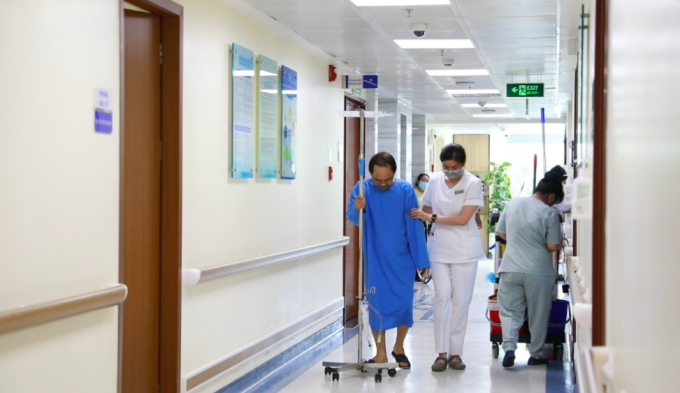
Mr. Hieu learns to walk again after successful surgery. Photo: Tam Anh General Hospital
Prostate cancer is considered a disease of older men, often occurring in people aged 65 and over. To date, the cause of this disease has not been clearly identified. However, the disease has been shown to have a close relationship with a number of factors such as age, genes, race (Asians have a lower incidence than whites and blacks), environment, toxic chemicals, and an unbalanced diet.
When prostate cells develop abnormally or out of control, they form tumors. Usually, in the early stages, the disease often develops slowly without symptoms, or urinary symptoms are easily confused with other diseases such as: frequent urination at night, weak urine stream, incontinence, acute urinary retention, bloody urine... If detected and treated promptly, cancer can be completely eradicated, maintaining life for many more years.
However, if detected at a late stage, cancer progresses very quickly, can metastasize to nearby organs or to distant organs such as bones, liver, lungs, making treatment difficult, complicated, expensive and potentially fatal. Therefore, Dr. Vu Le Chuyen advises men, in addition to building a healthy lifestyle, to have regular health check-ups to screen, help detect and treat the disease promptly. In particular, when there are unusual signs, you should see a doctor immediately to prevent the disease from progressing badly, leading to dangerous complications.
Quyen Phan
Source link


![[Photo] General Secretary To Lam receives Japanese Ambassador to Vietnam Ito Naoki](https://vstatic.vietnam.vn/vietnam/resource/IMAGE/2025/4/3/3a5d233bc09d4928ac9bfed97674be98)

![[Photo] Ho Chi Minh City speeds up sidewalk repair work before April 30 holiday](https://vstatic.vietnam.vn/vietnam/resource/IMAGE/2025/4/3/17f78833a36f4ba5a9bae215703da710)
![[Photo] Prime Minister Pham Minh Chinh chairs the first meeting of the Steering Committee on Regional and International Financial Centers](https://vstatic.vietnam.vn/vietnam/resource/IMAGE/2025/4/3/47dc687989d4479d95a1dce4466edd32)
![[Photo] A brief moment of rest for the rescue force of the Vietnam People's Army](https://vstatic.vietnam.vn/vietnam/resource/IMAGE/2025/4/3/a2c91fa05dc04293a4b64cfd27ed4dbe)
![[Photo] Prime Minister Pham Minh Chinh chairs meeting after US announces reciprocal tariffs](https://vstatic.vietnam.vn/vietnam/resource/IMAGE/2025/4/3/ee90a2786c0a45d7868de039cef4a712)
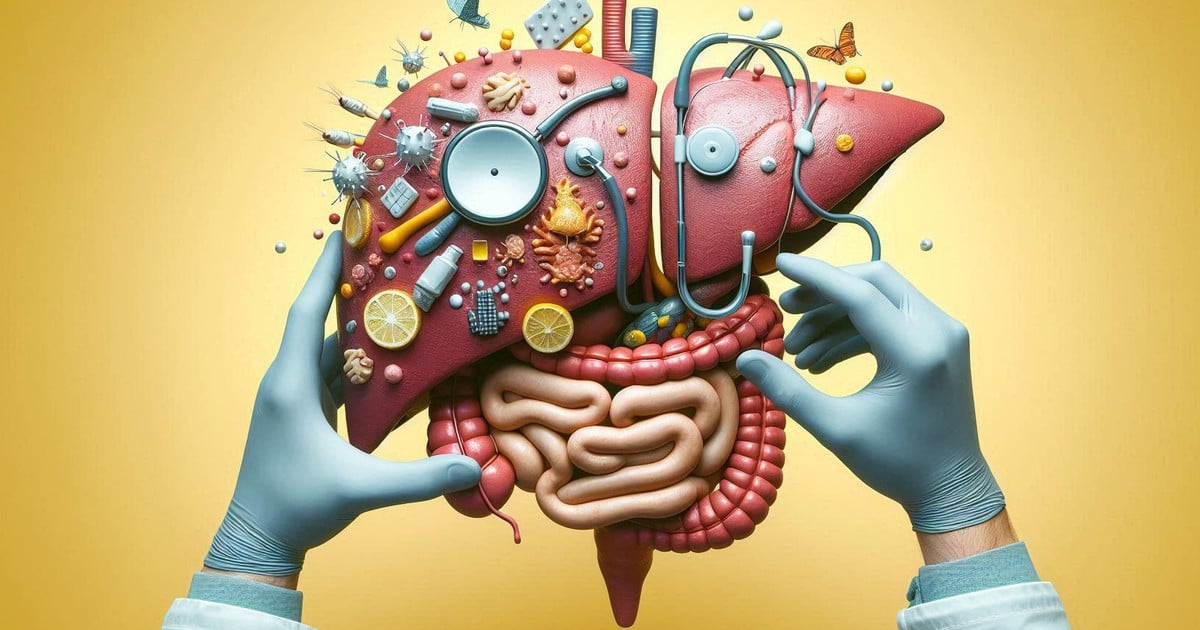



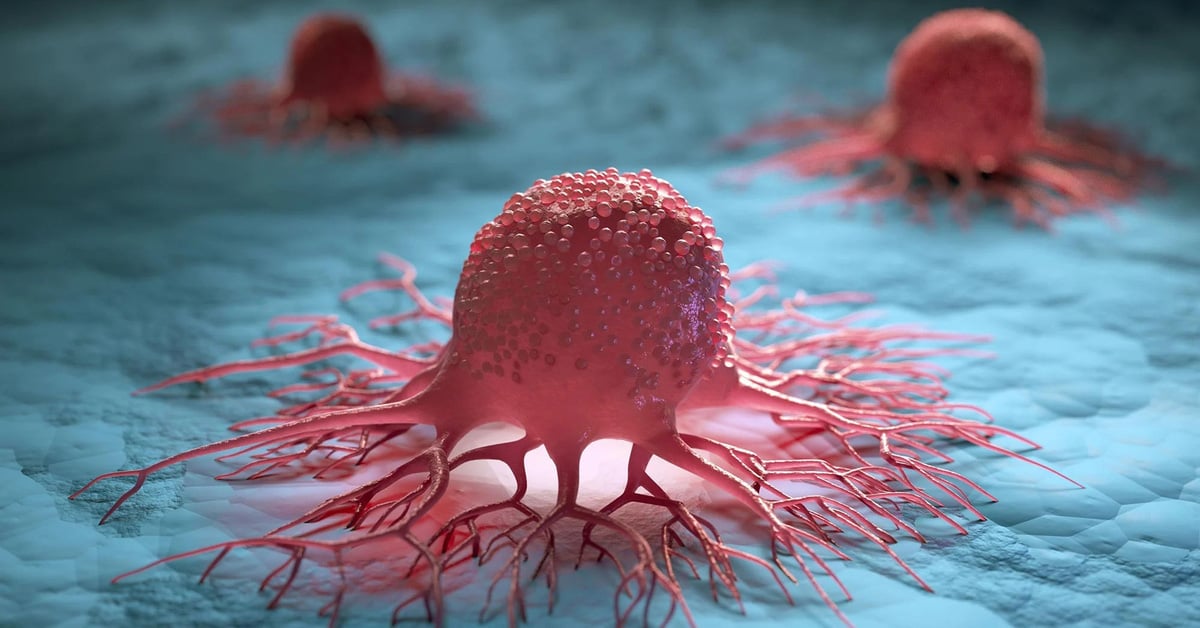







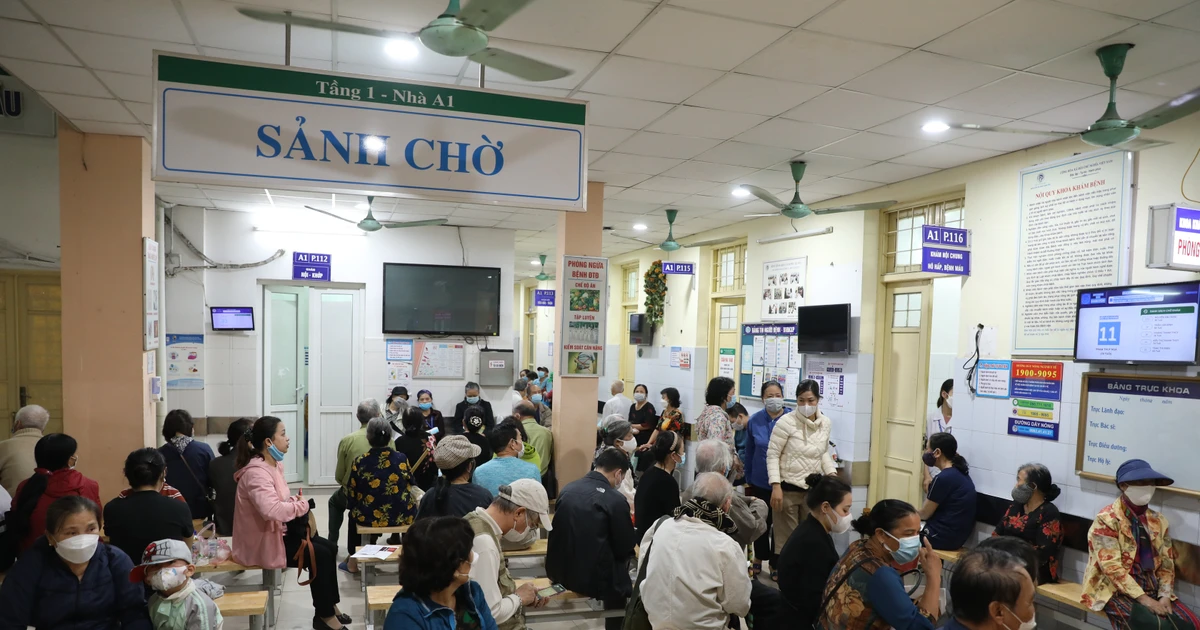
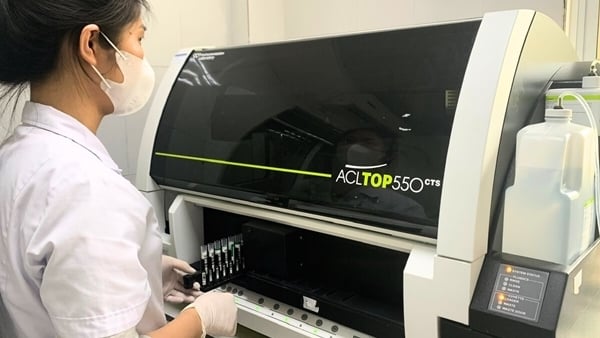

























































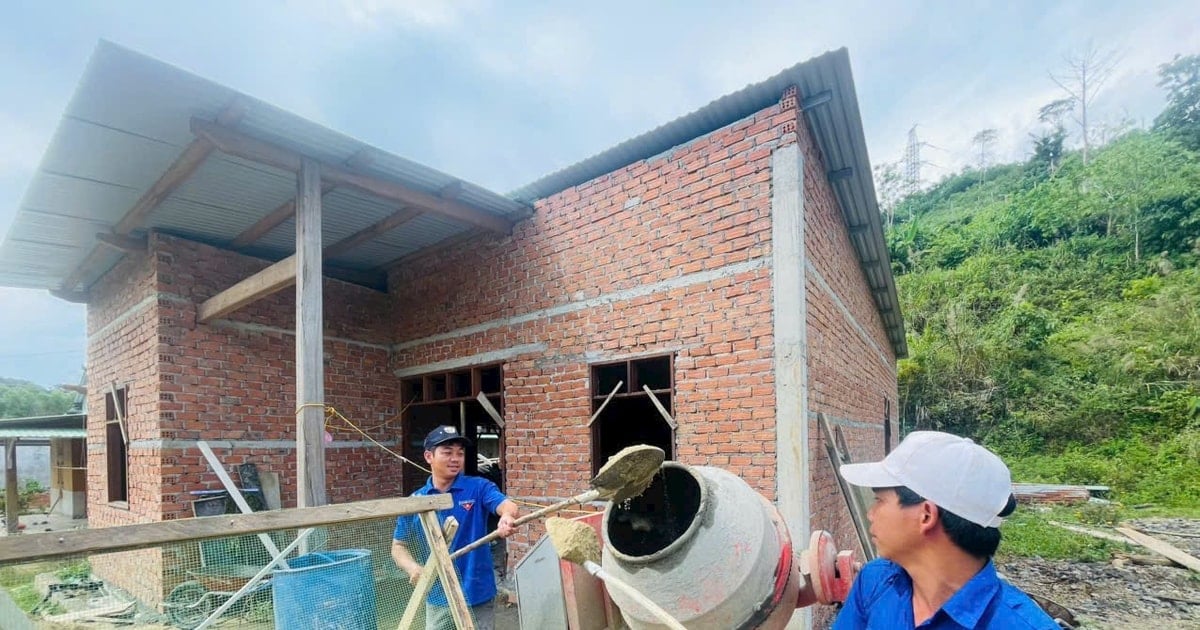

















Comment (0)